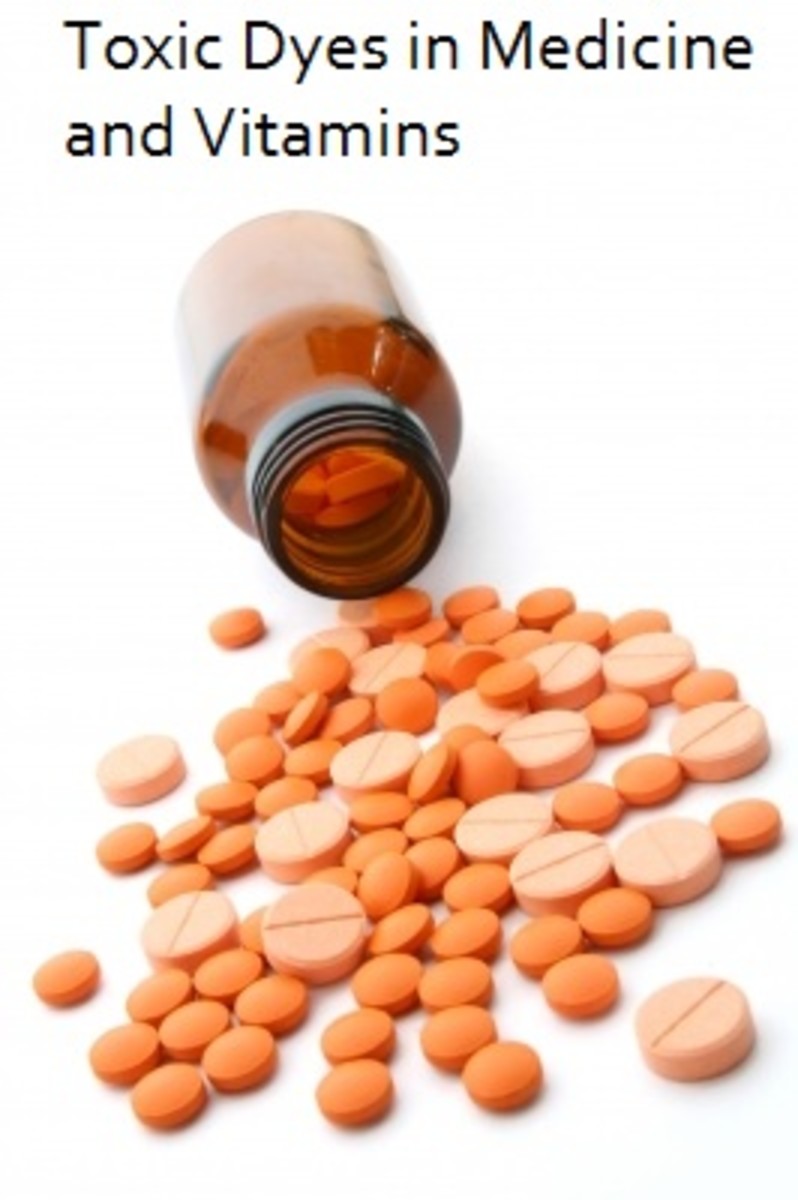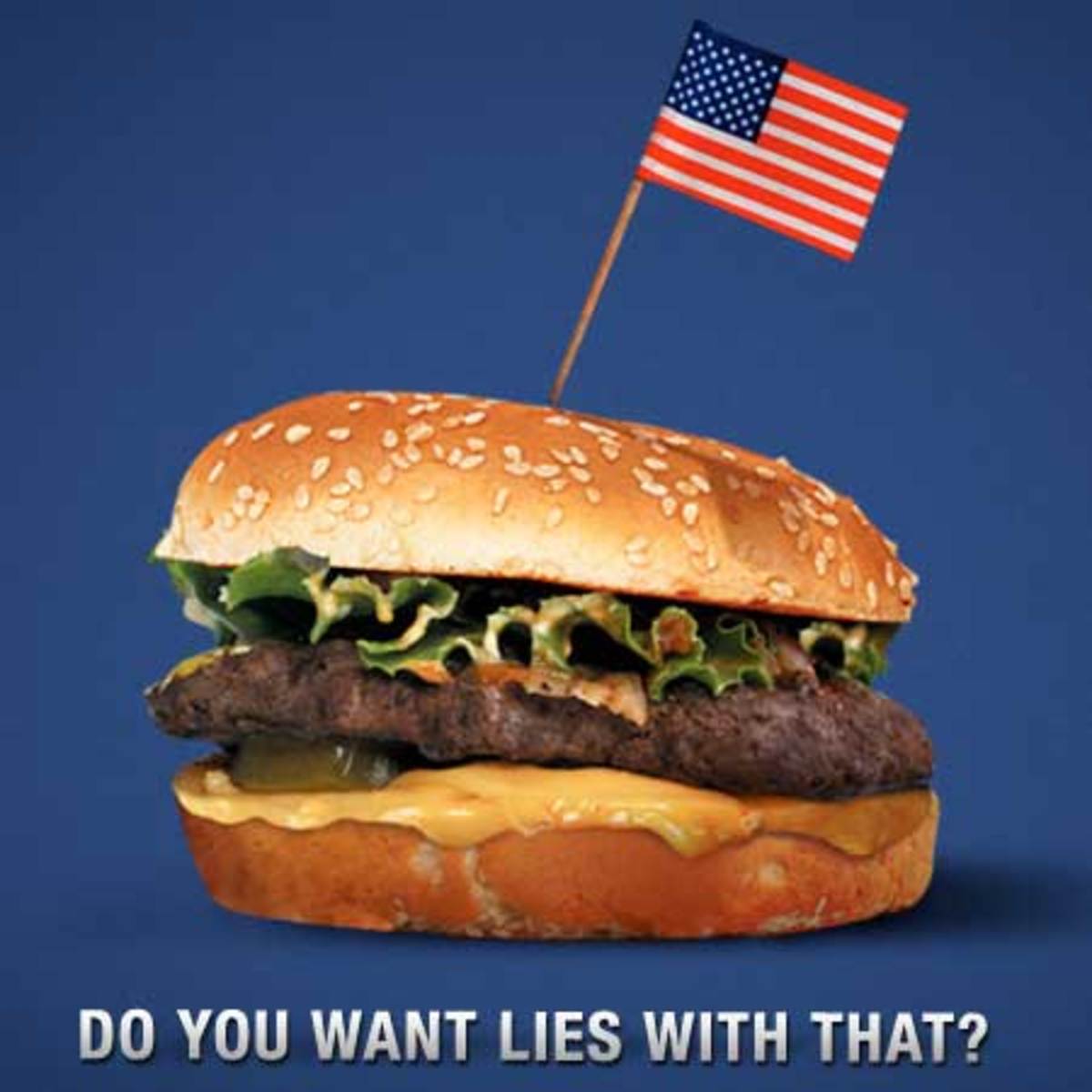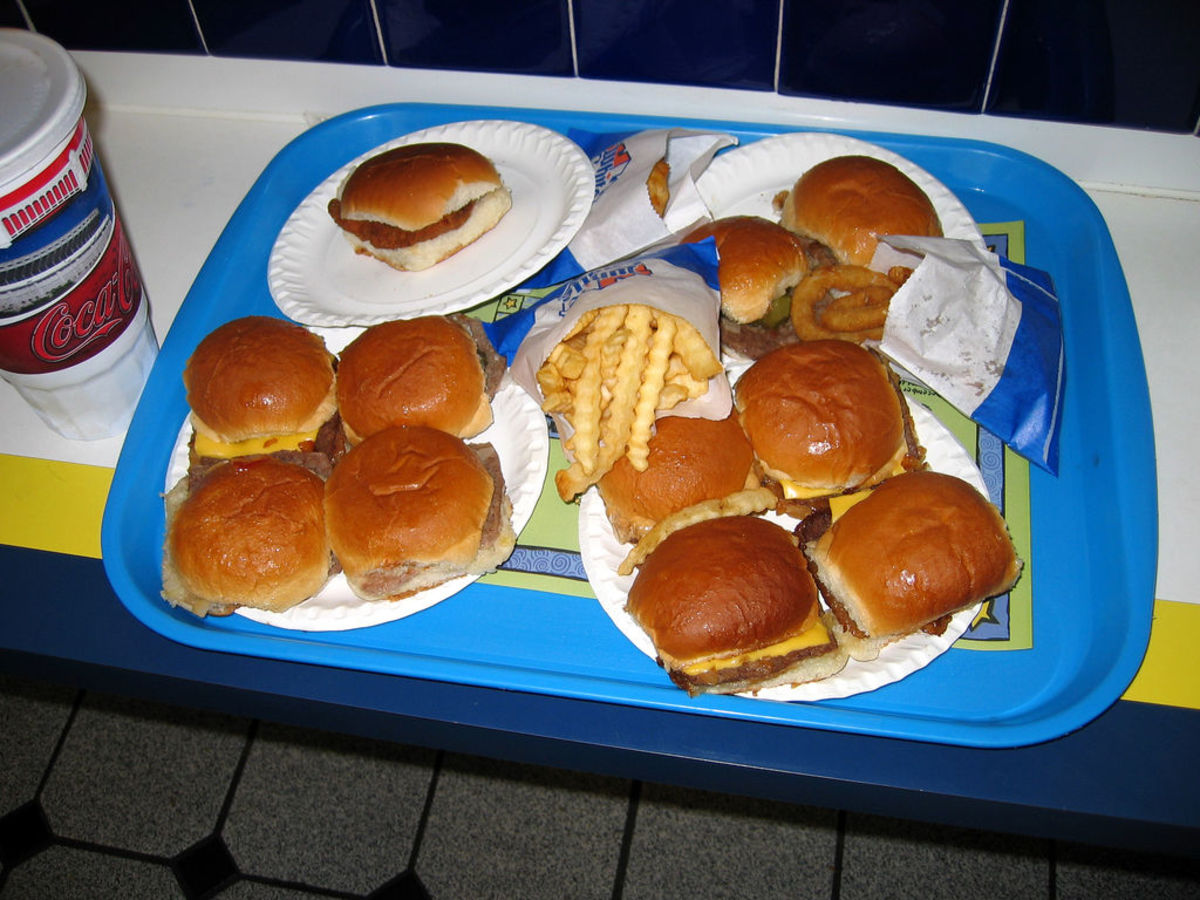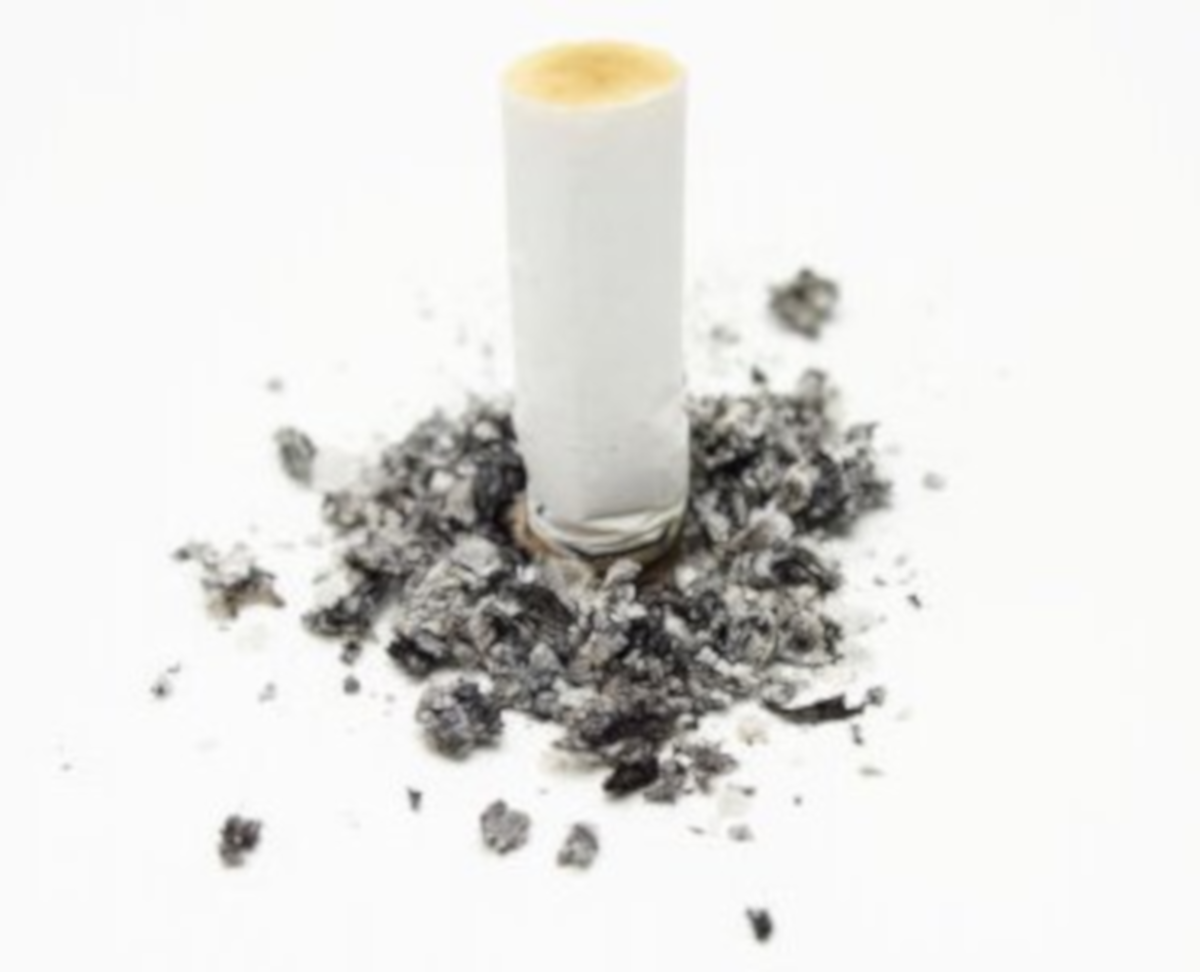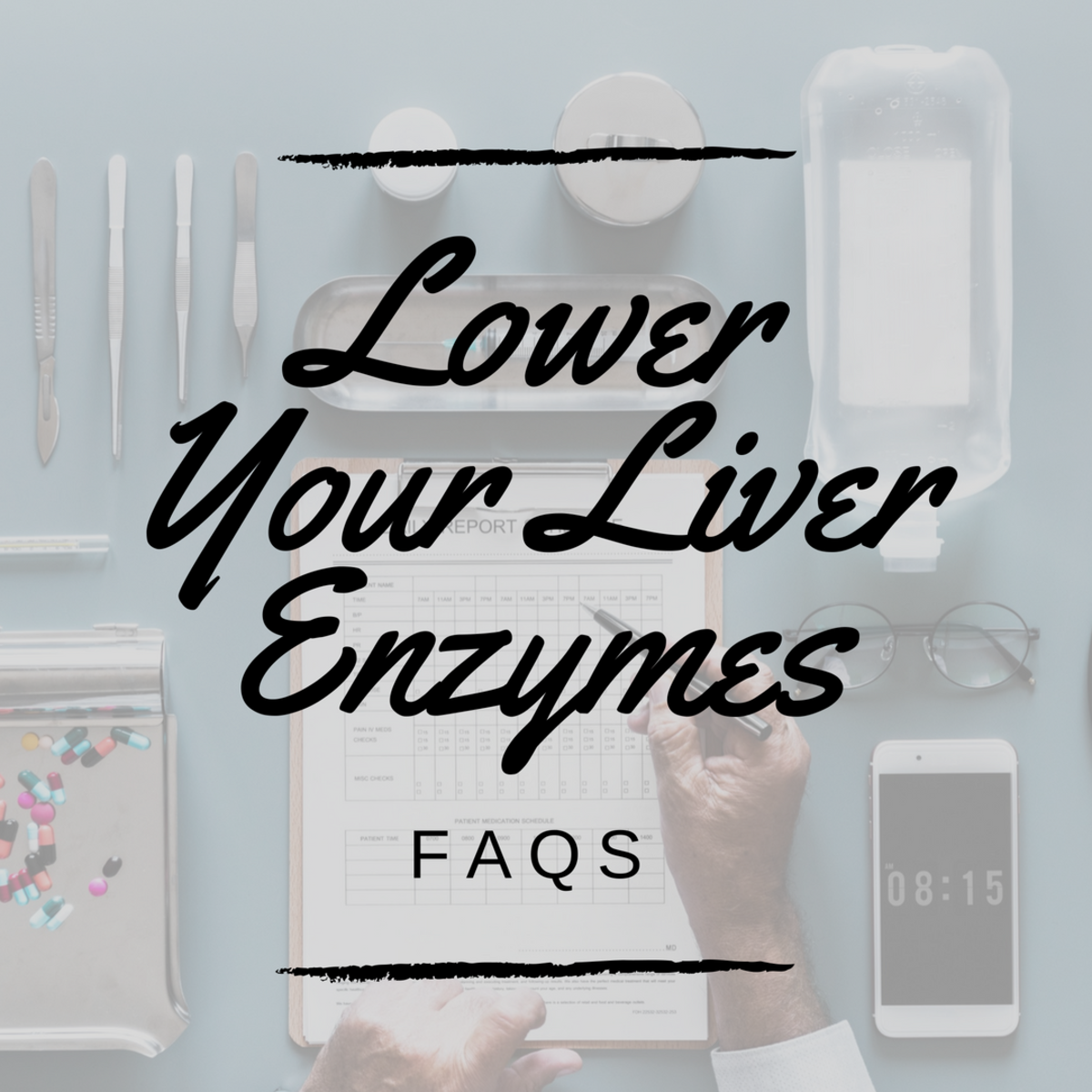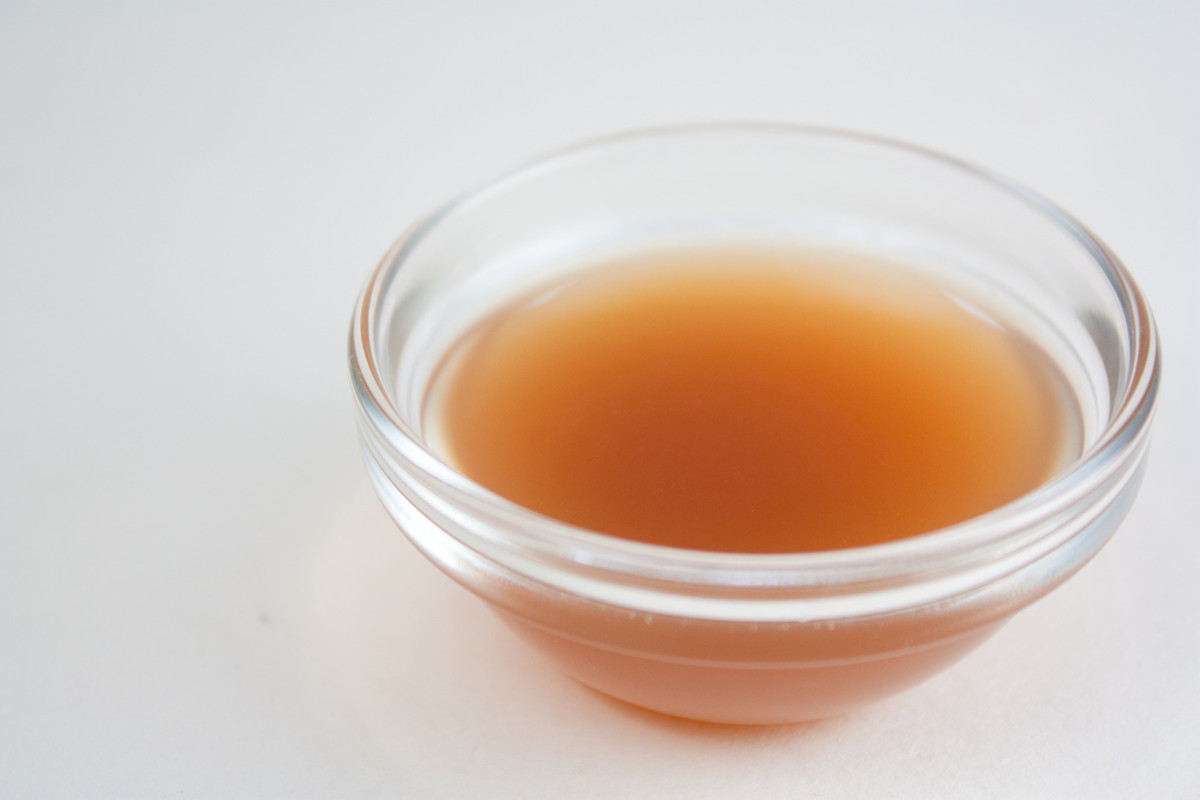How to Identify and Avoid Unhealthy Substances in Fast Food
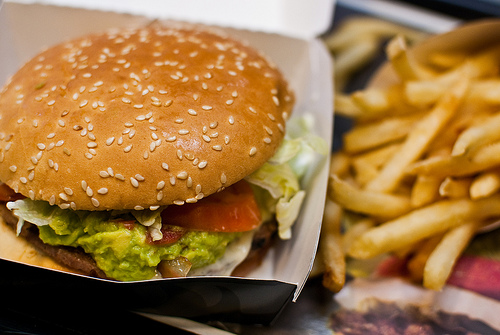
Heroin and Cocaine Were Once Accepted as "Healthy" Substances
You know, it wasn't that long ago when cocaine and heroin were readily available from the corner store.
In a late 1890's leaflet from the Bayer® Aspirin Company, heroin is touted alongside aspirin as a "sedative for coughs" - samples of which could be sent via mail upon request.
Pope Leo XIII awarded a Gold Medal award for Vin Mariani, a cocaine wine advertised for "body, brain and nerves."
From 1886 to 1903, Coca-Cola® had 9mg of cocaine per serving and didn't remove all of the cocaine from it's product until 1929. The scientific and medical authorities at the time gave no indication of the adverse effects of these now illegal, psychoactive substances.
Considering the scientific knowledge of that time was not advanced to the point of prohibiting these substances against over-use or abuse, could the ingredients in certain fast foods today be the "cocaine and heroin" of yesterday?
Currently, fast food is known to contain many substances that are known to be unhealthy or even carcinogenic. Yet these substances are not yet regulated to the point of prohibiting them from public consumption.
Could these modern substances be causing people to become more addicted to fast food and it's unhealthy effects? Are substances like monosodium glutamate and casein helping people to develop diseases or become sick? What about trans fats, artificial colors, artificial flavors and preservatives?
The known substances commonly used in fast food items are currently affecting people's health in a negative way. How do you go about avoiding these unhealthy foods?
.
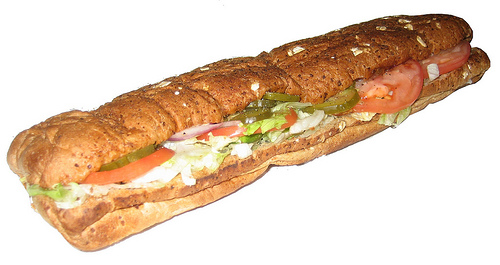
Are "Healthy" Fast Foods Really Healthy?
Most people who eat healthy foods typically consider the healthiest foods to be raw vegetables and fruits, raw seeds, nuts, whole grains and clean meats that are not processed or treated with preservatives. Good, wholesome foods like free range chicken and wild Alaskan Salmon are generally free of chemical additives and preservatives.
The folks who eat these healthy foods would not expect things like monosodium glutamate (MSG; also known as autolyzed or hydrolyzed free glutamic acid or free glutamate) to be in the food they eat.
The same goes for trans fats, hydrogenated oils, partially hydrogenated oils, preservatives, artificial flavors or colors. These are typically not found in whole, unprocessed foods.
No one who eats healthy foods would expect these chemicals and preservatives to be included as an added ingredient. So why do fast food restaurants label their additive laden menu items as "healthy?"
.
Known Unhealthy Substances in Fast Food
Much of the so-called "healthy" food available in fast food restaurants today could hardly be considered healthy according to most standards. Most of the chicken, beef or other types of meat used in fast food fare have added emulsifiers, MSG, preservatives, artificial flavors, artificial colors, trans fats and many other chemical substances.
These additives (generally recognized as safe by modern authorities) are only required to be specified on food labels under the generic terms of "spices" or "other natural and artificial flavors." This makes it especially difficult to determine of "healthy" fast food is really healthy.
.
Artificial Sweeteners
Known additives to be aware of include any artificial sweeteners like aspartame (Nutrasweet® or Equal®). Aspartame is a neurotoxin and carcinogen and can adversely affect short-term memory and erode intelligence.
It is also believed to be a contributing factor in lymphoma, brain tumors, diabetes, multiple sclerosis and many other diseases and dangerous or life-threatening health conditions.
.
Monosodium Glutamate (MSG)
MSG or monosodium glutamate is an amino acid used to enhance flavor in certain foods like chips, salad dressings, soups and many other fast foods.
MSG is a known excitotoxin which may damage or kill cells in the human body. Adverse health conditions include depression, eye damage, headaches, fatigue, disorientation and obesity.
This insidious chemical also shuts down neurological pathways in the brain which tell you that you're full. In short, MSG causes you to eat more food and thereby may cause weight gain and obesity.
.
Trans Fat
Used to lengthen shelf-life of certain foods, trans fats are among the most dangerous of all fast food additives. This additive is generally found in certain processed foods like chips, crackers and margarine.
Trans fat is also found in deep-fried fast foods prepared with partially hydrogenated vegetable oils or margarine. These trans fats increase LDL cholesterol levels and lower HDL (good) cholesterol levels. A higher level of LDL cholesterol is known to increase the risk of heart disease, heart attack, strokes, diabetes and other inflammatory diseases.
While most fast food restaurants have eliminated the use of Trans fat in deep fat fryers, it is still prevalent in other fast food and processed food items.
.
There are many more unhealthy additives such as preservatives, food dyes and other chemicals used in "healthy" fast food choices.
Due to certain regulations, some of these added chemicals and ingredients may not be specifically listed on food labels. You may need to do some additional research to find out if certain foods contain these unhealthy ingredients.
.
When is Chicken More Than Just Chicken?
Like so many food items in the fast food industry, a simple thing like chicken breast filet becomes a long list of chemical compounds and preservatives - all added to preserve flavor, color and shelf-life of the product. This list or ingredients for a simple chicken breast filet appears on the website of a popular fast food chain.
TENDERGRILL® CHICKEN BREAST FILET
Chicken Breast with Rib Meat, Water, Seasoning (Maltodextrin, Salt, Sugar, Autolyzed Yeast Extract, Garlic Powder, Spices, Natural Flavors, Onion Powder, Modified Corn Starch, Chicken Fat, Chicken Powder, Chicken Broth, Disodium Guanylate and Disodium Inosinate, Citric Acid, Partially Hydrogenated Soybean Oil, Dehydrated Garlic, and Artificial Flavors.), Modified Corn Starch, Soybean Oil, Salt, Sodium Phosphates. Glazed with: Water, Seasoning [Maltodextrin, Salt, Sugar, Methylcellulose, Autolyzed Yeast Extract, Partially Hydrogenated Sunflower Oil, Modified Potato Starch, Fructose, Partially Hydrogenated Soybean Oil, Garlic Powder, Onion Powder, Dehydrated Garlic, Spices, Modified Corn Starch, Xanthan Gum, Natural Flavors, Disodium Guanylate and Disodium Inosinate, Chicken Fat, Carmel Color, Grill Flavor (from Partially Hydrogenated Soybean and Cottonseed Oil), Chicken Powder, Chicken Broth, Turmeric, Smoke Flavor, Annatto Extract, and Artificial Flavors], Soybean Oil.
Source: http://www.bk.com/#menu=3,-1,-1
.
Not All Fast Food is Healthy Fast Food
Just because a fast food restaurant advertises healthy fast food does not necessarily mean their "healthy" food is indeed healthy. Food labeling regulations allow for specific ingredients to remain unlisted on certain types of food labels.
Typically, if a fast food restaurant uses a proprietary spice blend form another supplier, they may simply list this as "added spices." Some other ingredients may not be specifically named but show up under the term "other added ingredients." Here are just a few examples of unlisted ingredients in typical fast food items.
Eggs
Eggs at these fast food restaurants are typically more than just eggs. While eggs alone are a healthy choice, these fast food eggs include additives that help to maintain color and preserve freshness.
Even though you may never know it, citric acid, sodium acid pyrophosphate, nisin and monosodium glutamate are also included with your eggs.
Some restaurants prepare their eggs using a liquid margarine which typically contains trans fat (like hydrogenated cottonseed and soybean oils), salt, monoglycerides, diglycerides, potassium sorbate and sodium benzoate.
Coffee
You would think coffee would be a simple and pure ingredient - just coffee beans and water right? Not exactly.
A list of ingredients in a typical cup fast food coffee might include sodium polyphosphate, sodium phosphate, di-acetyl tartrate ester of monoglyceride, tetra sodium pyrophosphate, and many other chemical additives and food coloring. If you add sweetener and cream to your coffee, you may also be getting the aspartame in artificial sweeteners and the trans fat found in some creamers.
.
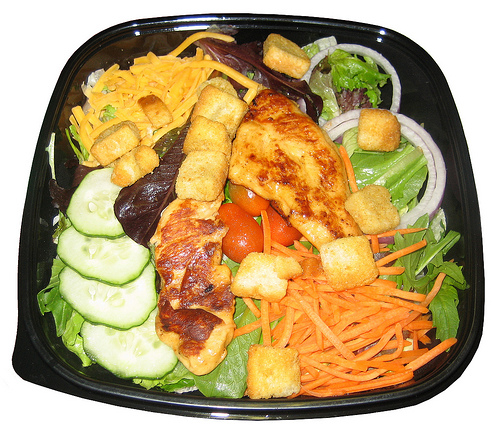
Salads
Should you go for the healthy salad and bypass all those additives and chemicals? Maybe not. Even the so-called healthy salads with "grilled" chicken are prepared using liquid margarine that contain trans fats.
The lime, orange or citrus glazes used on salads may contain propylene glycol alginate - a substance designated as GRAS (generally recognized as safe) for humans, however, this chemical is illegal to use in in cat food until more tests are done to prove it is safe.
Salad dressings are another food that is typically loaded with unhealthy levels of sodium, sugar and fat as well as ingredients like titanium dioxide (used in sunscreen), monosodium glutamate and other preservatives.
.
Ultimately, Fast Food is Your Responsibility
That's right - fast food restaurants will continue to make unhealthy food until people stop ordering it. Since they seem to be more interested in your money than your health, you must step up and take responsibility.
While not all ingredients in all fast food menu items are bad for your health, there are a great number of unhealthy ingredients and additives of which you should be aware.
Before you eat any food, you should always take a minute to really know what you're putting in your body and what specific substances may do to your body.
The information in this article is provided as a information resource only. This information should not used for treatment or diagnosis of any medical conditions. As a first step, always consult your physician or healthcare professional before making any decision or assessment regarding any possible medical condition.
________________________________________________________________



